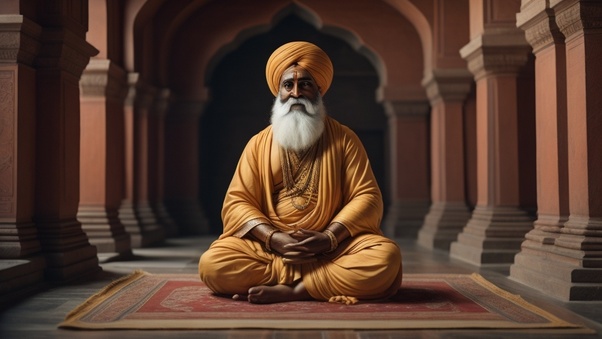This particular incident from the travels of Guru Nanak Dev alludes to the practice of “Charon’s obol”, which was the practice of placing a coin in a dead person’s mouth as payment for Charon, the ferryman who was thought to convey souls across the river that divided this world and the next.
Guru Nanak reaches an opulent and rich-looking city, but whose people are poor. The people tell Guru Nanak that their King, named Karu, had developed a fascination for gold and silver. He imposed high taxes, leaving little for either consumption, or for investment.
As a result, the country has fallen into poverty, even though the King is rich.
On the same day, Karu’s advisers start a devious scheme to take away
Guru Nanak goes to the palace, and calls for the King. When Karu arrives, Nanak is busy collecting pieces of broken pottery. He hands them to Karu. “Please keep them safe along with your gold and silver chests,” he said, “and return them to me after your journey to the next world.” A surprised Karu said he cannot do this. “If you cannot even take broken pottery, then why are you troubling your citizens with your gold lust? See beyond these trinkets, for they will perish.”
Kabeer, this body shall perish; save it, if you dare;
Even those who have tens of millions, depart bare-footed in the end.
That day on, Karu opened his palace as a rest house for the homeless, and used the gold and silver to build schools and hospitals, and his country moved on a path of prosperity

